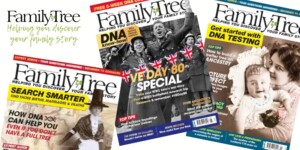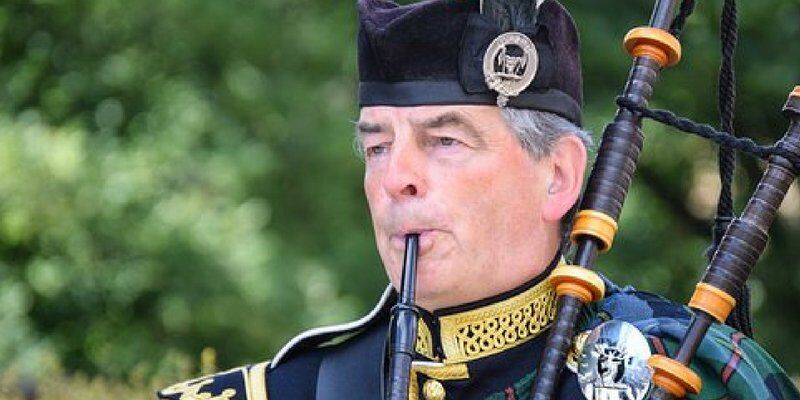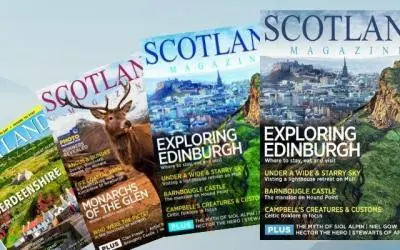Scottish Surnames have a long and often troubled past. The Romans name it Caledonia, the Gaels called it Alba, but today it’s known as Scotland, a country with a rich and complex history.
After surviving many invasions and battles over the centuries, it’s only apt that Scottish surnames have a complicated but intriguing background. So in this article, The Knight’s Vault are going to give you a guide to everything you need to know, with a few examples of popular Scottish names along the way. To read about your own Scottish surname, simply enter your Scottish surname in our name search box. You can order a surname history showing the earliest coat of arms, or a clan history proudly displaying your clan badge.
Early History surnames in Scotland became popular in the 12th century, but were only in use consistently after the 16th century. And even then, it took until the 18th century for surnames to reach the Highlands. Previously, surnames were the reserve for only the upper classes of Scottish society. This meant most people were simply known by their forename. However, the small selection of names meant a lot of people ended up sharing the same name.
For example, over 30% of men were called William, John, or Richard in the 13th century. This inevitably led to some confusion, so nicknames or ‘bynames’ were now in use and from these grew Scottish surnames.
Bynames
Bynames fell into a few categories, and one of these was ‘patronymic’, which means that the surname was derived from the father’s forename. But these patronymics were put together differently depending on whether you were from the Highlands or the Lowlands of Scotland.
If you were from the Lowlands of Scotland then the surname would be as follows: – The father’s name is David. The son’s name is John. Using the Lowland patronymic formula ‘son’ is added to the end of the father’s name, so the son’s name will be John Davidson.
The father’s name is Donald. The son’s name is Jamie. Using the Highland patronymic formula ‘mac’, derived from the Gaelic ‘meic’, which means ‘son of’, is added to the beginning of the father’s name. The son’s name therefore will be Jamie MacDonald.
However, as the generations continued the surnames constantly changed. For example, if John Davidson then had a son named Ewan, his name would then be Ewan Johnson.
Scottish Surnames focus
Murray – comes from Moray in the Highlands.
Abercrombie – comes from the town of the same name in Scotland.
Macintosh – The name comes from the Gaelic mac an toisich meaning ‘son of the chieftain’.
Locations and Occupations
Bynames also fell into categories of locations and occupations. Many of the first surnames used derived from locations or the land owned, and the upper classes were the first to have these types of surnames.
Other surnames derive from the jobs that people did. Some are more obvious than others. – Taylor comes from the occupation tailor. Smith comes from the occupation blacksmith. Baxter comes from baker. Baird comes from poet.
Did you know the most common surname in 2015 in Scotland was Smith?
Gaelic
A lot of surnames came from Gaelic words. Often some were nicknames for people to distinguish one John from another in the time before surnames. These surnames over time were anglicized to make them easier to pronounce. Or they were changed completely to hide a person’s origins if they migrated to the Lowlands.
The surname Campbell derives from the Gaelic words ‘cam’ which means crooked and ‘beul’ which means mouth. Cameron comes from the Gaelic words ‘cam’ which means crooked and ‘sròn’ which means nose. Craig originates from the Gaelic word ‘creag’ which means crag or rocks. The surname Duff comes is and derives from The Gaelic ‘dubh’, which means black.
Surname focus: MacLachlan
The surname is the anglicized form of Mac Lachlainn meaning ‘son of Lachlan’. The name Lachlan comes from the Gaelic Lochlann meaning ‘land of the lochs’.
Foreign Influence
As well as Gaelic, Scottish surnames also came from other languages. This is because of the numerous invasions and occupations Scotland encountered over the centuries. The most common influences discovered in surnames are from the Norsemen and Norman periods.
The surnames Gunn and Thorburn are both old Norse names. The Norsemen, who came from Scandinavia, occupied the northern and western isles in Scotland. This was a long period, from the 8th to the 15th century. The surnames Hay and Bissett both originate from the Norman period, after their invasion of England.
The surname MacLeod means ‘son of Leod’. Leod being a Norse name which is believed to be derived from the word ‘ljotr’ meaning ugly. Did you know, Robert the Bruce was a descendent of a 12th century Norman knight called Robert de Brus? Click these links if you’re interested in finding out more about your surname history or clan history.
Search for your Scottish history here.
Useful Resource
Our friends at Family Tree Magazine have some excellent articles including this one about records that are free to view. We hope you’ll find it helpful.

Family Tree Magazine is packed with tips for anyone researching their ancestry.



